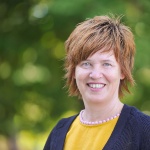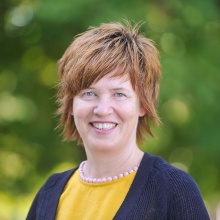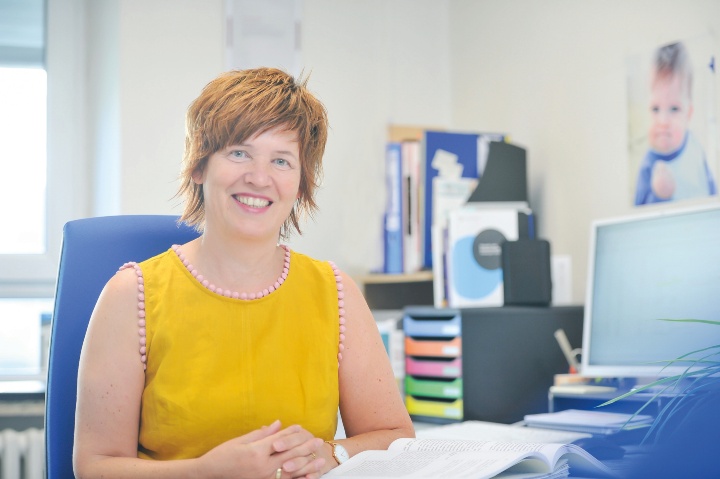Silvia Meyer began her second term as Equal Opportunities Officer in early April. As there were no rival candidates, Meyer decided to continue in the position for a further five years. She is supported by the new deputy Julia König, who has been responsible for childcare services at Service Uni & Family for two years.
What conclusions can you draw from your previous term in office?
Silvia Meyer: Taking on the role during the pandemic was peculiar, and rather difficult. Contacting people and networking was a challenge; but being able to network again and offer courses for employees is great.
Despite the unusual start, I have felt very comfortable in my role as Equal Opportunities Officer, right from the very beginning. I enjoy being free to decide what I want to promote, in addition to taking care of the recurring tasks. I am really pleased that I can continue working in this exciting field and I am looking forward to tackling the upcoming challenges – both old and new.
What really sticks in my mind from my first term in office is that people often didn't know what distinguishes me as Equal Opportunities Officer, from my colleagues in the Gender Equality Office: I am responsible for employees from the areas of technology, administration and the library. The Gender Equality Office, on the other hand, acts on behalf of our scientists and students. This shows that equal opportunity issues need to become even more visible - and that's something I'm working hard to achieve.
What are you currently working on, and which projects would you like to implement next?
Meyer: The next big project will be to lobby for fair pay in the public sector. The TV-L tariffs in the public sector indirectly discriminate against employees, but especially against professions that traditionally tend to have more female employees. The salary groupings and limits that were once established are now, in my view, outdated and in urgent need of a contemporary and fair adjustment. To advance this topic at our university, pairwise comparisons as part of a pay equality check (EG-Check) are a possible option. This means comparing roles that are of equal value and exploring which tasks and competencies are valued and ultimately paid for in these occupations - using the criteria required for these occupations. To this end, I would like to work closely with the Personnel and Legal Affairs department and try to initiate a change in thinking wherever adjustments can be made.
I will also continue to work on Evermood. After one year, there are now more than 200 contributions online on the platform and it continues to grow. I have received very positive and grateful feedback and praise for the platform, so I am confident that Evermood will continue to operate after the test phase, which ends in April 2024. The platform has a high volume of visitors, and we are currently considering whether to integrate external psychologists into the project and offer anonymous psychological counseling via telephone and chat.
At this point, I would also like to thank all my colleagues at the university who are actively involved as contact persons for the most diverse groups of people and problems.
What do you enjoy the most in your work?
Meyer: What gives me the greatest pleasure is being able to help people who turn to me and being able to improve their situations. I am regularly sought out by employees who need advice, and they often report conflicts in their work and family environments. In particular, cases of workplace bullying and sexual harassment have increased since contact restrictions were removed. This is shocking, but in most cases, I can help them and together we can find a satisfactory solution. Of course, it would be better if such cases didn't arise at all.
I also find it exciting to take a closer look at the issues that highlight unequal relationships between women and men, and to draw attention to these. I plan to retire following this term in office. Until then, I intend to use the time to implement as many of my goals as possible.
Offerings from the Equal Opportunities Officer
The Equal Opportunities Officer is responsible for all employees working in the field of scientific support. She is the main point of contact for both women and men regarding topics such as balancing family, care duties and career. She also advocates for targeted, state-funded support in those areas where women are underrepresented. To this end, she works closely with various departments, such as the Gender Equality Officer and the Gender Equality Office, the Service Uni & Family, as well as the Care Coordinator and various working groups.
Interview: Jacqueline Gehrke

Silvia Meyer
Equal Opportunities Officer



